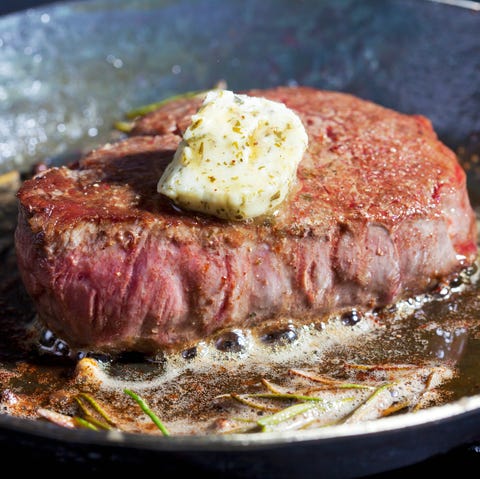Don’t Get Conned by ‘Plant-Based Butter’
As if the supermarket weren’t already confusing enough, there’s now something strange afoot in the butter section. Specifically, plant-based butter.
Last year Country Crock announced the release of Country Crock Plant-Butter, joining a slew of other products such as Miyoko’s Cultured Vegan Butter, Melt Vegan Butter, and I Can’t Believe It’s Not Butter! It’s Vegan (whew).
Oooooooooohhhh, “plant-based” is a thing now and it’s so healthy and butter is so yuck, your friend who buys things from the Goop Shop for men might say.
You, on the other hand, have a fairly accurate bullshit detector. Maybe you’ve also been on this planet long enough, survived the Snackwells-filled hell that was the late-80s-early-90s low-fat “craze,” and you’ll look askance at that Country Crock Plant-Butter, scratch your chin, and wonder, “Uhhhhhhhhh, isn’t that margarine?”
Let’s get out our butter knives and dig in deeper.
What’s in plant-based butter?
Country Crock Plant-Butter with Olive Oil is made of a “blend of plant-based oils (palm kernel, canola, palm fruit, and olive oil), water, salt, pea protein, sunflower lecithin, monoglycerides, citric acid, natural flavor, vitamin A palmitate, calcium disodium EDTA (to protect freshness), beta carotene (color).”

By comparison, here’s the ingredients list for Land O Lakes Margarine: “vegetable oil blend (palm oil, palm kernel oil), soybean oil, water, buttermilk, contains less than 2% of salt, potassium sorbate (to preserve freshness), soy lecithin and mono and diglycerides (emulsifiers), lactic acid, natural and artificial flavor, vitamin A palmitate, beta-carotene (color).
Hot dang now I’m no butter expert, but these two products sure do look mighty close, don’t they?
Could it be that margarine makers are co-opting the “plant-based” movement to push more palm kernel oil, vitamin A palmitate, and that always-delicious “natural” flavor?
Is plant-based butter healthier than real butter?
“I think this is just another example of minutia marketing,” says Mike Roussell, R.D., author of The MetaShred Diet. “’Plant based’ is the new ‘high protein,’ which was the new ‘gluten free,’ which was the new ‘fat free.’ I have trouble with the claim that this is a product with simple, natural ingredients, as it isn’t, and compared to butter, which would be cream and salt—it would definitely lose that comparison.”

What’s more, Country Crock has bushed that plant-based butter offers “better for you fats” and “does not contain animal fats and thus has zero trans-fat, unlike dairy butter, which is higher in saturated fats and has trans fats.”
This is a crock of something, alright, because even the American Heart Association does not come down on the trans fat found naturally in animal products.
The AHA states: “Small amounts of trans fats occur naturally in some meat and dairy products, including beef, lamb and butterfat. There have not been sufficient studies to determine whether these naturally occurring trans fats have the same bad effects on cholesterol levels as trans fats that have been industrially manufactured.”
Well, okay, what about saturated fat?
“The claim that a diet high in saturated fats can increase LDL-C and therefore increase heart disease and stroke risk is hard to dismiss. It’s entrenched in the medical field, and the association is shown consistently,” says Brian St. Pierre, R.D., C.S.C.S., Director of Performance Nutrition at Precision Nutrition.
“Now does that mean that the cholesterol content itself is the issue? I have significant questions/doubts there,” St. Pierre says. “It seems to me that particle number is a much larger concern, due to the mathematical probability that with more particles it’s more likely some will penetrate the endothelium (especially with inflamed endothelium, which some saturated fats may contribute to).”
In short, it’s complicated.
And, as Roussell states, changing from a butter-based butter to a plant-based butter likely won’t do all that much if the rest of your diet and lifestyle look the same.
“Not eating butter and using this new plant-based spread on toasted white bread is a change that will yield no tangible impact on health,” Roussell says.
The Bottom Line
There’s no one ideal cooking fat. Yes, coconut oil has benefits (though many are overblown), but so does peanut oil, safflower oil, and grass-fed butter. The general consensus is to cook with and consume a variety of fats instead of entrusting your diet to just one.
“Plant-based” or otherwise.
Source: Read Full Article


